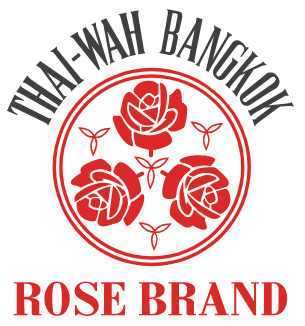
Incorporated in 1947
Thai Wah Public Company Limited (the "Company") was formed by the amalgamation of Thai Wah Starch Public Company Limited and Thai Wah Food Products Public Company Limited on October 1, 2015.
Milestones
Thai Wah Starch Public Company Limited (“TWS”) (originally known as Thai Wah Co., Ltd.) was incorporated in 1947 to initially buy wolframite, an iron oxide ore of tungsten.TWS entered into the tapioca business by buying flour from many existing small factories in order to export to the United States of America. Even though the flour they had purchased was of relatively poor quality, the business was fairly profitable. This was due to the fact that during that period tapioca flour was in great demand and that Brazil and Indonesia, the two main producing nations, were unable to produce sufficient quantities to supply world demand. TWS decided to expand the tapioca business by buying cassava roots and processing its own tapioca flour. TWS identified a suitable site for its own factory and secured a long-term lease in the Sriracha area on Sukhumvit Road. This became TWS’s first tapioca factory and was known as Thai Wah 1 in those days. Tapioca flour was marketed under the company’s own “ROSE” brand and was welcomed by international buyers because its quality met international standard.
TWS’s tapioca business took another major leap forward and TWS purchased the entire tapioca network from its competitors. The transferred assets included factories on the Bangpakong River and in Rayong Province, making TWS a major player in the tapioca industry. Subsequently, TWS pioneered the export of tapioca flour to Japan. By 1963, TWS had become Thailand’s largest exporter of tapioca and its production of flour continued to increase steadily for the next 20 years. The main location of the cassava plantations had shifted to Thailand’s northeast, leading TWS to build factories in Nakorn Ratchasima, Udorn Thani, Kalasin, and Kamphaeng Phet, which were all close to the major cassava cultivating area. In 1985, TWS was listed on the Stock Exchange of Thailand.
Subsequently in 1994, TWS co-invested with a state enterprise in Vietnam to establish a joint venture company, Tay Ninh Tapioca Joint Stock Company originally known as Tay Ninh Tapioca Company Limited, to produce and distribute tapioca starch and glucose syrup. TWS held a 70 percent interest in the Vietnamese company.
While TWS continued to develop its tapioca business, Thai Wah Food Products Public Company Limited (“TWFP”) was pioneering the vermicelli business in Thailand. In 1952, TWFP established the factory to produce mung bean vermicelli in Thailand on an area of 13.5 rai at Sanphawut Road, Bangna Bangkok. The mung bean vermicelli produced by TWFP was of superb quality and rapidly gained popularity among consumers.
Over the years TWFP successfully grew its business and is widely recognized today as the leader in the local vermicelli market. Its products are well recognized under the “Double Dragon”, “Phoenix”, and “Double Kilin” brands. TWFP expanded its business by establishing the largest vermicelli factory in Thailand in Banglane District, Nakorn Pathom Province in 1985 and commencing the automation of its vermicelli production line in the following year. In 1989 TWFP was successfully listed on the Stock Exchange of Thailand.
In 2009, TWFP started production and distribution of rice noodles on a trial basis. In 2014, TWFP expanded its rice noodle and rice vermicelli production capacity by constructing a new factory located in the same area as the vermicelli factory.
In 2015, the shareholders' meeting of TWS and TWFP approved the amalgamation of TWS and TWFP and also approved "Thai Wah Public Company Limited" as the name of the amalgamated entity.



